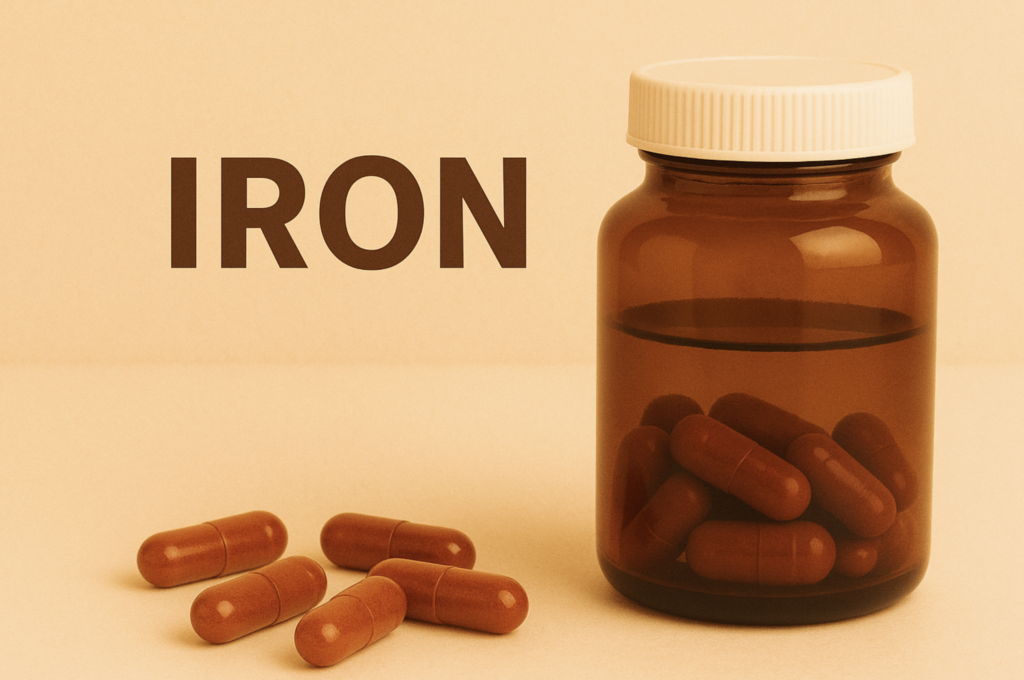Feeling tired, forgetful, or noticing more hair in the shower? For many women over 40, these symptoms can be linked to low iron levels—even if you’re not anemic. Iron is essential for energy production, cognitive function, and hair growth. As estrogen shifts and digestion changes with age, iron absorption often declines. This guide explains the importance of iron, signs of deficiency, and how to choose the best supplement.
🩸 1. Why Iron Matters More After 40
- Iron supports red blood cell production and oxygen delivery to tissues
- Key for energy, brain function, and healthy skin and hair
- Iron needs may remain high post-menopause due to poor absorption or diet gaps
💡 Low iron can mimic symptoms of menopause—fatigue, dizziness, and thinning hair.
⚠️ 2. Signs You Might Be Low in Iron
- Fatigue, weakness, and low stamina
- Hair thinning or excessive shedding
- Brain fog, dizziness, pale skin, brittle nails
- Restless legs or frequent headaches
💡 Women who don’t eat red meat, have gut issues, or heavy past periods may be more vulnerable.
🌿 3. Best Types of Iron Supplements
- Ferrous bisglycinate: Gentle on the stomach, highly absorbable
- Heme iron: Animal-based form, easily absorbed
- Liquid iron: Easier for sensitive digestion
💡 Avoid ferrous sulfate if you experience constipation or GI upset.
🍋 4. How to Take Iron for Best Absorption
- Take with vitamin C (citrus, bell peppers) to boost absorption
- Avoid taking with calcium, coffee, or tea which block iron uptake
- Best absorbed on an empty stomach, but okay with food if needed
🛑 Always check your levels before supplementing—excess iron can be harmful.
🥩 5. Iron-Rich Foods to Support Your Levels
- Heme iron: beef, chicken liver, turkey, shellfish
- Non-heme iron: lentils, spinach, pumpkin seeds, quinoa
- Pair with vitamin C-rich foods for better absorption
💡 Cooking in cast iron pans can slightly increase iron intake from plant foods.
Iron is a critical nutrient for women over 40, especially those struggling with fatigue, brain fog, or hair loss. Whether from dietary gaps or absorption issues, low iron levels can hold back your health and energy. If you suspect a deficiency, work with your healthcare provider to test your levels and find a supplement that fits your body best.
Adaptogens for Women Over 40: Balance Stress, Hormones & Energy
Cleveland Clinic: Iron Deficiency Symptoms and Solutions
